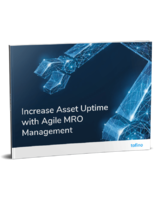NASA Data provides hands-on approach at teacher workshop.
Press Release Summary:
At workshop hosted by Hampton University, NASA, and Puerto Rico NASA Space Grant Consortium, teachers were given tools to study particles in the air in their own neighborhoods and analyze how those particles, also known as aerosols, affect local and global climate. When teachers return home, they can continue to work with scientists to conduct atmospheric investigations and make comparisons with data collected by NASA satellites, which is publicly available through program called MY NASA DATA.
Original Press Release:
NASA Data Provide Hands-On Approach at Teacher Workshop
LA PARQUERA, Puerto Rico, -- This week, teachers are coming together in Puerto Rico to learn how they can take environmental studies back into their classrooms.
At a workshop hosted by Hampton University in Hampton, Va., NASA and the Puerto Rico NASA Space Grant Consortium, teachers are being given tools to study particles in the air in their own neighborhoods and analyze how those particles, also known as aerosols, affect local and global climate.
"Great partnerships and science projects evolve by giving teachers an opportunity to collaborate with one another, especially when it is done on a global level," says Barbara Maggi, the outreach director at the Center for Atmospheric Sciences at Hampton University and workshop team member.
The workshop is taking place from June 20 to 25, 2010 at an AERONET (AErosol RObotic NETwork) facility that is dedicated to measuring atmospheric aerosols from the ground. This time of year, a significant amount of dust travels over Puerto Rico from the Saharan Desert, creating optimal conditions for getting hands-on experience with measuring aerosols.
"The teachers attending the workshop will develop lessons and investigations that allow their students to better understand the impact humans have on their environment and how that impact can affect other communities worldwide," explains Maggi.
When the teachers return home they can continue to work with scientists to conduct atmospheric investigations and make comparisons with data collected by NASA satellites, which is publicly available though a program called MY NASA DATA.
"Research shows that the best way to interest students in science is to give them an opportunity to work with real science projects and scientists," says Dianne Robinson, a Hampton University professor and director of the workshop.
One of the connections being made between students and real scientists is an ongoing NASA study of African dust and its effect on climate and oceans. Learning the science behind this study allows teachers at the workshop to make lesson plans with real-life applications about why studying the atmosphere is important.
Olga Kalashnikova, a research scientist at NASA who is studying the African dust, explains that dust storms like those occurring in Africa, can affect the Earth in many ways, such as changing soil moisture content, air and surface temperatures, rainfall and air quality.
Workshop organizers also seek to raise awareness about resources for educators, such as MY NASA DATA and the Global Learning and Observations to Benefit the Environment (GLOBE) program. These programs allow teachers and students to observe satellite data and participate in taking and reporting environmental measurements.
Lessons from the workshop will be posted on the MY NASA DATA site: http://mynasadata.larc.nasa.gov/
Additional information about the African Dust Workshop is available at the Hampton University workshop website: http://aerosols.hamptonu.edu/
NASA Langley press releases are available automatically by sending an e-mail message to langley-news-request@lists.nasa.gov with the word Subscribe in the subject line. You will receive an e-mail asking you to visit a link to confirm the action. To unsubscribe, send an e-mail message to langley-news-request@lists.nasa.gov with the word Unsubscribe in the subject line.
CONTACT: Chris Rink of NASA Langley Research Center, +1-757-864-6786, or
+1-757-344-7711, christopher.p.rink@nasa.gov
Web Site: http://www.nasa.gov/
http://aerosols.hamptonu.edu/




